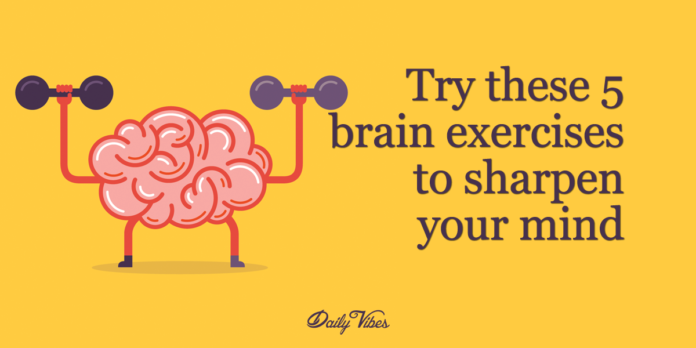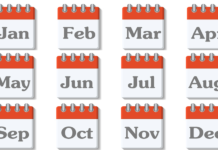The brain is easily among the most crucial organs in your body. You can live with one kidney. You can lose the appendix.
You can get multiple feet of intestines removed and still be able to survive. But lose any of your brain and you’re looking at some major problems.
Much like when you don’t work out you lose muscle mass, if you don’t work out your brain, you put yourself at risk of losing some of your brainpower.
Fortunately there are ways that we can exercise our brains and keep our minds sharp well into old age.
1. Increase your vocabulary.

The first exercise I’d recommend is increasing your vocabulary. This can be done by simply reading more advanced books and looking up words you don’t know, or even learning the rudimentary vocabulary of another language.
Learning to count to 10 in Japanese or learning what colors are in French counts as increasing your vocabulary.
Studies have found that people who routinely learn new words have better functioning brains.
2. Play games and do puzzles.

When I say play games, I don’t mean run out and get an Xbox, but play games that put a little strain on your mind. Puzzles are perfect for this.
Chess is another great game for strengthening the mind.
3. Learn a new instrument or find a new hobby.

When you learn a new skill, you’re forming new neural pathways in your brain, making your mind even more nimble.
The more you learn, the easier learning becomes too. Don’t get frustrated though: if all you’ve learned to do is play Mary Had A Little Lamb on the piano, that’s okay!
You learned something, and that’s what’s important here.
4. Exercise.

Staying healthy and eating clean are incredibly useful for maintaining good brain health.
People who don’t work out are more likely to suffer from cognitive impairment later in life, and people who play sports have greater coordination.
5. Do yoga.

Stress is the mind killer, and a little yoga or meditation goes a long way to relieving stress.
Researchers have found that people who do yoga show vastly improved cognitive function compared to people who did just regular exercise.
If you enjoyed this article, don’t forget to SHARE it on Facebook with all your friends and family!

















